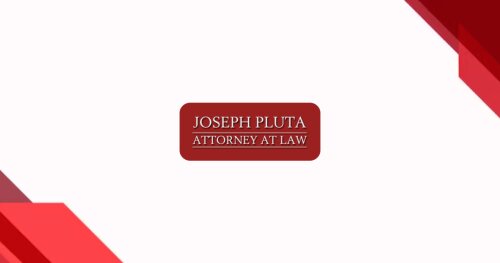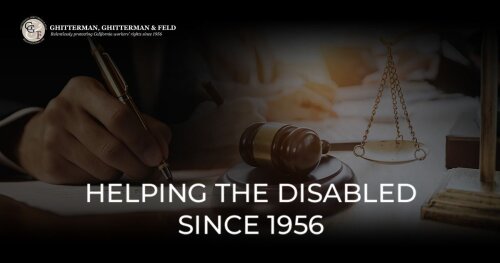Best Insurance Fraud Lawyers in Vermont
Share your needs with us, get contacted by law firms.
Free. Takes 2 min.
Or refine your search by selecting a city:
List of the best lawyers in Vermont, United States
About Insurance Fraud Law in Vermont, United States
Insurance fraud in Vermont refers to any intentional act committed to defraud an insurance process. It can involve providing false information, exaggerating claims, staging accidents, or even deliberately causing losses to obtain benefits from an insurance company. Both individuals and businesses can be held liable under Vermont law if found guilty of committing or attempting to commit insurance fraud. Authorities treat this offense seriously because insurance fraud increases premiums and undermines public confidence in the insurance system.
Why You May Need a Lawyer
Several scenarios may require legal assistance related to insurance fraud in Vermont, including being accused of committing insurance fraud, receiving a subpoena or investigation notice from an insurance company or government agency, or if you suspect someone else has defrauded your insurance policy. Lawyers can help you understand the accusations, defend your rights in court, and provide guidance if you are facing criminal charges or civil penalties. Legal professionals can also represent policyholders who have been accused unfairly or need help navigating insurance company disputes.
Local Laws Overview
Vermont's laws concerning insurance fraud are found mainly in Title 13 (Crimes and Criminal Procedure) and Title 8 (Banking and Insurance) of the Vermont Statutes Annotated. Under Vermont law, it is illegal to knowingly submit false, incomplete, or misleading information to an insurer regarding any material fact related to an insurance application or claim. The Vermont Department of Financial Regulation (DFR) investigates suspected cases, and those convicted of insurance fraud may face significant fines, restitution orders, and even imprisonment. Both individuals and businesses can be prosecuted. The Vermont Insurance Fraud Unit is tasked with investigating and prosecuting these crimes in conjunction with local law enforcement and federal agencies if necessary.
Frequently Asked Questions
What is considered insurance fraud in Vermont?
Insurance fraud is defined as any act committed with the intent to obtain unauthorized benefits from an insurance process, usually by providing false or misleading information to an insurer or deliberately misrepresenting or omitting facts.
What are common examples of insurance fraud?
Common examples include exaggerating the extent of property damage, staging automobile accidents, falsifying medical or vehicle repair bills, submitting multiple claims for one loss, and misrepresenting facts during policy applications.
What are the penalties for insurance fraud in Vermont?
Penalties can include criminal charges, court fines, restitution, probation, and in some cases, imprisonment. The severity depends on the extent of fraud and whether it is charged as a misdemeanor or felony.
Can someone be charged for attempted insurance fraud even if no money was gained?
Yes. In Vermont, it is illegal to attempt to defraud an insurer, even if the attempt was unsuccessful or did not result in a payout.
Are there any defenses against insurance fraud charges?
Common defenses may include lack of intent, mistakes or misunderstandings, or lack of evidence to prove the fraud was committed knowingly. An experienced lawyer can examine the specifics of any case to determine the best approach.
Who investigates insurance fraud in Vermont?
Investigations are typically handled by the Vermont Insurance Fraud Unit within the Department of Financial Regulation, sometimes working in partnership with state and federal law enforcement agencies.
What should I do if I am accused of insurance fraud?
It is important to consult with a defense attorney immediately. Do not discuss your case with investigators or insurance company representatives without legal counsel, as anything you say can be used against you.
Can insurance companies deny claims if they suspect fraud?
Yes, insurance companies can and often do deny claims they believe are fraudulent. They may also refer the matter to authorities for criminal investigation.
Are businesses subject to insurance fraud laws?
Yes, both individuals and businesses may be investigated and prosecuted for insurance fraud under Vermont law.
Can insurance fraud affect my future insurance coverage?
A fraud conviction can result in cancellation of existing policies and may make it more difficult to obtain insurance in the future. It can also lead to increased premiums or denial of coverage.
Additional Resources
If you need more information or want to report suspected insurance fraud, consider these organizations and agencies:
- Vermont Department of Financial Regulation - Insurance Division
- Vermont Insurance Fraud Unit
- National Association of Insurance Commissioners
- Federal Bureau of Investigation (for large-scale or organized schemes)
- Vermont Bar Association
Next Steps
If you believe you are involved in or affected by an insurance fraud case in Vermont, your best course of action is to consult a qualified attorney with experience in insurance law and criminal defense. Gather any relevant documentation, correspondence, and records related to your insurance policies or claims. Act quickly, as delays can affect your case. If you wish to report suspected fraud, contact the Vermont Insurance Fraud Unit or the Department of Financial Regulation. Early legal advice can protect your rights and help you make informed decisions during the investigation or court proceedings.
Lawzana helps you find the best lawyers and law firms in Vermont through a curated and pre-screened list of qualified legal professionals. Our platform offers rankings and detailed profiles of attorneys and law firms, allowing you to compare based on practice areas, including Insurance Fraud, experience, and client feedback.
Each profile includes a description of the firm's areas of practice, client reviews, team members and partners, year of establishment, spoken languages, office locations, contact information, social media presence, and any published articles or resources. Most firms on our platform speak English and are experienced in both local and international legal matters.
Get a quote from top-rated law firms in Vermont, United States — quickly, securely, and without unnecessary hassle.
Disclaimer:
The information provided on this page is for general informational purposes only and does not constitute legal advice. While we strive to ensure the accuracy and relevance of the content, legal information may change over time, and interpretations of the law can vary. You should always consult with a qualified legal professional for advice specific to your situation.
We disclaim all liability for actions taken or not taken based on the content of this page. If you believe any information is incorrect or outdated, please contact us, and we will review and update it where appropriate.
Browse insurance fraud law firms by city in Vermont
Refine your search by selecting a city.










